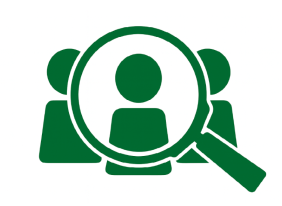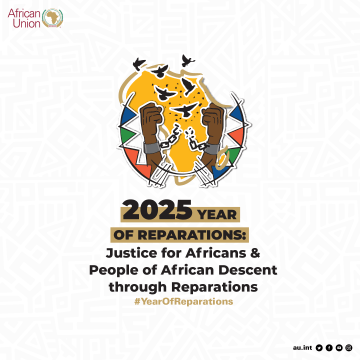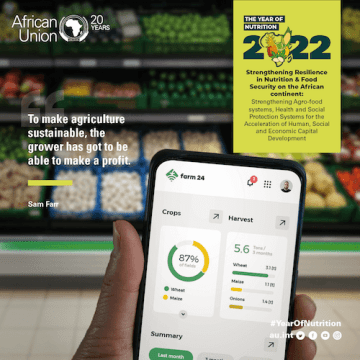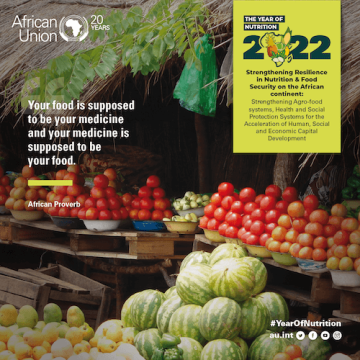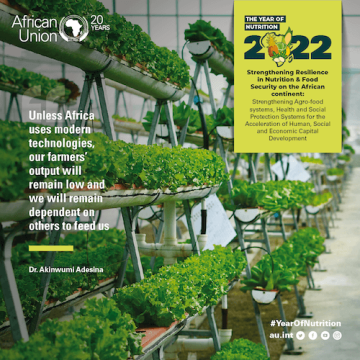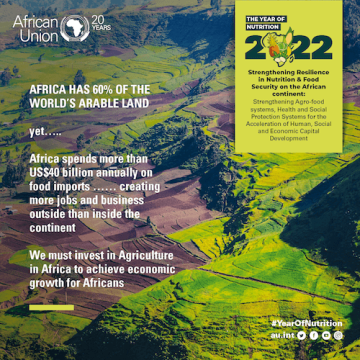AFRICAN PEER REVIEW MECHANISM
PROCUREMENT No: EOI/ APRM/AUC/ CAGC/05/2023
PROPOSED TERMS OF REFERENCE FOR CONSULTANT IN ADMINISTRATION FOR THE AFRICA MIGRATION GOVERNANCE CONFERENCE
Assignment: Consultant in Administration for Africa Migration Governance Conference
Reporting Division: Office of the CEO
Date: May 2023
Duration of Project: 5 months
INTRODUCTION
Migration is a phenomenon that always existed and is characterized by “ the movement of persons away from their place of usual residence, either across an international border or within a State”[1] . This movement of persons can be justified by push and pull factors. On one hand push factors driving people away from an area can be determined by conflicts and war, political and economic crisis, social inequalities or again natural disasters and infectious diseases. On the other hand, pull factors of migration that attracts people in an area or country are defined within the economic, political, cultural and environmental framework of a State.
In the past two years the scale of international migration has risen to 272 million globally due to major migration and displacement events such as conflicts, causing hardship, trauma and even death[2]. The last two years have also been characterized by a transformation in the global migration governance with the two Global Compact on refugees and migration calling for dedicated international cooperation and commitment to address migration challenges.
Although political narratives and media images often focus on the purported “exodus” of Africans to Europe, the bulk of African migrants move within the continent, with the latest figure putting the volume of intra-African migration at more than 80% Africans are underrepresented in the world migrant population and the continent has the lowest extra continental out-migration rates of all the world regions, despite popular representations of Africa as a “continent on the move”. The number of international migrants living on African soil has been growing, from an estimated 20.3 million in 1990 to an estimated 32.5 million in 2015 . These figures reflect the low levels of development and the high constraints poverty and border controls tend to put on people’s ability to migrate over long distances.
At the same time, it is important to note that Africa has made notable progress in terms of free movement. The Visa Openness Index indicates that Africans do not need a visa to travel to 25 per cent of the African countries (up from 22 per cent in 2017, and 20 per cent in 2016). Africans can get visas on arrival in 24 per cent of African countries (also 24 per cent in 2017, and 25 per cent in 2016). Africans need visas to travel to 51 per cent of the African countries (down from 54 per cent in 2017, and 55 per cent in 2016). The free movement agenda of necessity entails ever more liberal visa regimes, including issuance of visas at ports of entry for all citizens of African Union Member States. On this ambitious road to continental integration though, a lot of challenges in facilitating free movement of persons have been noted, including, but not limited to: national security, public health threats, socio-economic disparities between Member States.
BACKGROUND
In 2020, the African Union reinforced its commitment to assessing and responding to migration challenges on the continent by publishing the Africa Migration Report but also through the Assembly Decision, Assembly/AU/Dec.765 (XXXIII) to hold an African Migration Governance Conference focusing on migration governance and sharing of best practices amongst AU Member States.
The Conference is held pursuant to the Assembly Decision, Assembly/AU/Dec.765 (XXXIII), which the Assembly supported the decision of the 29th APR Forum of Heads of State and Government for the APRM to organise an African Migration Governance Conference focusing on migration governance and sharing of best practices amongst AU Member States. The Assembly requested the APRM to organise the African Migration Governance Conference in collaboration with the AU Commission and relevant stakeholders.
The Conference is also held in line with the Decision of the African Union Peace and Security Council (PSC) of 11 September, 2019, PSC/PR/COMM.1 (DCCCLXXIX). The PSC through Communique PSC/PR/COMM.1 (DCCCLXXIX) urged the AU Commission to expedite the holding of a continental conference, in collaboration with all AU Member States, that will serve as a platform for all AU Member States to thoroughly highlight the issue of xenophobia, including its root causes with a view to finding a collective continental approach on how best to prevent its recurrence on the continent.
The Conference will focus on generating perspectives and concerns regarding the AU Free Movement Protocol using the 2015 International Organization for Migration (IOM) Migration Governance Framework (MiGOF) and Migration Governance Indicators (MGI) as a guide. The MGI will help to highlight the governance structure at Member State level that will identify gaps in policy that could present barriers to implementing the free movement protocol in selected countries. The African Migration Governance Conference will assist to define what a well-managed migration governance policy might look like at the national level. While at the same extract best practices of free movement at regional level that can provide strategies of operationalizing the free movement protocol.
THE AFRICAN PEER REVIEW MECHANISM
The African Peer Review Mechanism (APRM) was established in 2003, as a self-monitoring instrument voluntarily acceded to by African Union (AU) Member States. The mandate of the APRM is to ensure that the policies and practices of Participating States are in conformity with the agreed political, economic and corporate governance values, codes and standards, and to achieve mutually agreed objectives in socioeconomic development contained in the Declaration on Democracy, Political, Economic and Corporate Governance, as well as and the African Charter on Democracy, Elections and Governance, among other relevant treaties, conventions and instruments adopted by Participating States whether through the African Union or through other international platforms.[3]
OBJECTIVE OF THE ASSIGNMENT
The Consultant in Administration shall provide Administration support to the project team. The role requires a display of effective communication, coordination and time management skills.
SCOPE OF WORK AND DELIVERABLES
The Consultant in Administration is expected to:
- Provide Administration support to the project team;
- Handle a wide range of high-level administrative tasks including executive communication, handling of directorate corporate documents;
- Review and maintain documents and an up-to-date database of all key stakeholders;
- Manage correspondence with stakeholders as guided by the project manager
- Draft letters, meeting agendas and minutes;
- Maintain an up-to-date database of institutions, experts, CSOs to collaborate and /or be invited to the Conference;
- Assisting researchers in their search for scientific and technical documentation
- Update and upgrade electronic filing system and databases
- Maintain forms indicating all incoming and outgoing documents
- Working directly with the project coordinator and overall, Director on logistics and Administration processes
- Maintaining strict confidentiality
- Prepare handover report upon completion of the assignmemt
TIMELINES AND PAYMENT SCHEDULE
The Consultant in Administration will be assigned to the task 72 days spread across six months (5 months) starting from the date of the signing of the contract with APRM.
Milestone | Deadline/place/person responsible | Payment |
Presentation of the Work Plan at inception meeting | 1 May 2023 | N/A |
Administration Support for Dialogue on Migration | 30 May 2023 (Johannesburg) | 50% |
Administration Support for Africa Migration Governance Conference | 10 September 2023 | 50% |
Payment of remuneration is due after acceptance of the work and services after receipt of an invoice containing all the required details (together with all necessary receipts/vouchers).
The amount to be paid to the consultant shall not exceed 10000USD.
PLACE OF ASSIGNMENT
The assignment will be carried out physically at the APRM Continental Secretariat in Johannesburg, South Africa.
TRAVEL
The Administration Consultant is required to work from the APRM Continental Secretariat offices on agreed days weekly from 9 am to 5pm. No travel is envisaged. However, any work-related travel outside duty station will be covered by the APRM Secretariat, this will include air ticket and Daily Subsistence allowance.
RESERVATIONS AND CONFIDENTIALITY
APRM reserves the right to withhold all or a portion of payment if performance is unsatisfactory, if work/output is incomplete, not delivered, or for failure to meet deadlines. In the event of the producer ending the contract prior to delivering all agreed upon products, a portion of the payments shall be returned to the APRM.
The consultant undertakes to maintain confidentiality on all information that is not the public domain and shall not be involved in another assignment that represents a conflict of interest to the prevailing assignment.
SELECTION PROCESS
There will be two-step selection process consisting of a submission and an interview. The selection will be done based on the following evaluation criteria,
Evaluation criteria are as follows:
The Applicant should provide the following | Max. Point | Score |
Mandatory requirements: Bachelor’s degree or Diploma in Management or related fields | ||
Work experience: · Proven minimum 3 years work experience in administrative, secretary and/or management role in public sector or with donor funded projects. | 45 | |
Skills and Competencies · Possessing the ability to multitask. · Having excellent typing skills – speed and accuracy. · Being proficient in Microsoft Office Suite, including Outlook and other organisational tools. · Being organised and detail oriented. · Possessing strong communication skills, both verbal and written to communicate with business managers and employees and in some cases, stakeholders and clients. · Having the ability to work independently as well as part of a team. | 50 | |
Language · Fluency in English · Knowledge of French is an advantage | 5 | |
Total Score | 100% | |
The selection procedure shall be done in accordance with the AU Procurement Manual, version 2.0 dated July 2016. Only candidates who met the requirements shall be considrred for contract award.
Interested Consultants may obtain further information by contacting tenderinfo@aprm-au.org during office hours (8h00 -17h00 SAST). Clarification shall be published on the APRM website (www.aprm-au.org) and MUST be requested not less than seven (7) days prior to the closing date of the bid.
REPORTING
The Consultant in Administration will report to the office of the CEO and work under the supervision of the Chief of Staff.
The Consultant shall submit an original invoice, timesheet and payment will be effected following performance of services, submission of reports and acceptance of services performed.
MODE OF APPLICATION
Applications must be submitted via email: tender@aprm-au.org on or before 31 May 2023 at 11.00 am South Africa Time. The EOI Shall be opened on 31 May 2023 at 11.00 am South Africa time.
Submission to be titled: Procurement No: PROCUREMENT No: EOI/ APRM/AUC/ CAGC/05/2023: PROPOSED TERMS OF REFERENCE FOR CONSULTANT IN ADMINISTRATION FOR THE AFRICA MIGRATION GOVERNANCE CONFERENCE
All applications in writing should be accompanied by up-to-date Curriculum Vitae and supporting documents (Note: do not send originals) with the names and addresses of three referees, one of which should be the last or current employer and addressed to:
African Peer Review Mechanism Secretariat
Private Bag XO8, Halfway House
Physical Address: 230 15th Road, 1st Floor,
Randjespark, Midrand, 1685,
South Africa
Tel: +27 11 256 3401
Email: tender@aprm-au.org
[1]https://www.iom.int/key-migration-terms
[2] World Migration Report (2020) https://www.un.org/sites/un2.un.org/files/wmr_2020.pdf
[3] Statute of the APRM (2020), Article 4 (1)


